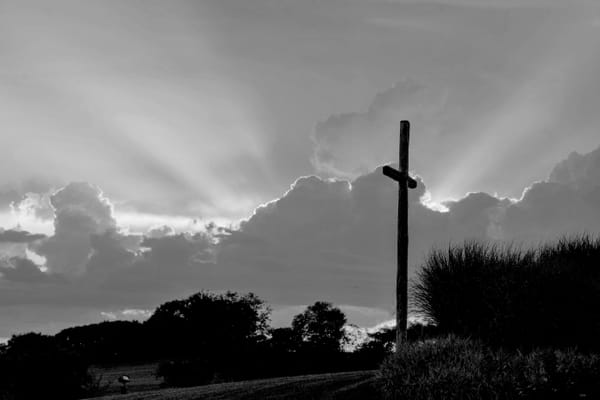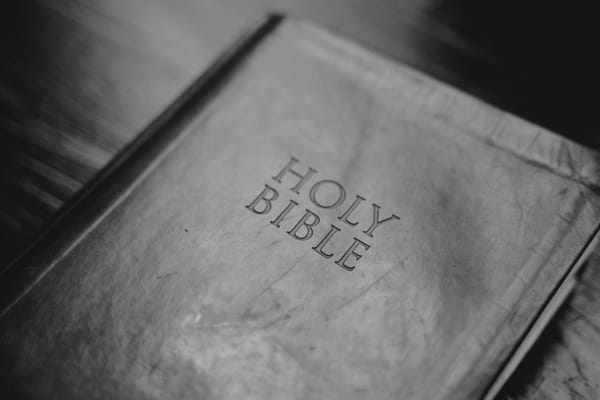The Kalam Cosmological Argument: Evidence for God
In the beginning, God created the heavens and the earth. - Genesis 1:1

As evidence and acceptance for the Big Bang Theory continues to advance, the steady state theory (an eternally existent universe) only declines in popularity. Also, some Christians don’t believe in the big bang!
The Big Bang theory is the idea that the universe had one, big, ultimate beginning to everything around us.
Dr. Frank Turek has an acronymic line of evidence for the big bang and a creator called
SURGE. Here’s what it says:
- Second law of thermodynamics: The second law of thermodynamics shows us that all energy eventually runs down into unusable energy, meaning that no energy can be eternally existent; it runs down. (This means that if the steady state theory were true, there would be an infinite amount of time for all of the energy in the universe to become unusable energy. To put it another way; we wouldn’t be here if the steady state theory is true.)
- Universe is expanding: In 1929, Edwin Hubble observed redshift in galaxies moving away from the earth. This is called Hubble’s law. (This means that if you watched the universe in reverse, all galaxies would come from one point that they are now moving away from.)
- Radiation afterglow: In 1965, astronomers Arno Penzias and Robert Wilson made an accidental discovery; the remnant heat leftover from the big bang. This is what we call the cosmic microwave background. This is the “smoking gun” to the big bang. (This means that leftover heat from the bang is still observable in our universe!)
- Great galaxy seeds: In 1989, NASA launched a satellite named COBE; Cosmic Background Explorer. This satellite was sent to study cosmology; its results were incredible. COBE found temperature variations in CMB as precise as 1 part in 100,000! These precise temperature variations allowed the early galaxies to form correctly. George Smoot, an astrophysicist who worked on COBE, said “If you’re religious, it’s like looking at God.”
- Einstein’s theory of general relativity: When Albert Einstein was developing his Theory of General Relativity, he came to the conclusion of a universe with a beginning. Since public opinion at the time was that of a static universe, he added a “fudge factor” in his equations to keep the possibility of an eternal universe. (This factor is also called the cosmological constant, or lambda)
Einstein’s theory was subverted when Edwin Hubble observed the redshift (mentioned in letter U of argument). Einstein denounced lambda and called it his “greatest blunder.”
What does this mean for us, and what can we learn from it?
The universe came to be (it had a beginning through the big bang theory,) thus, the universe requires a cause beyond itself.
The proper syllogism is as follows:
- Everything that begins to exist has a cause.
We derive this knowledge from the Law of Causality
- The universe began to exist.
We derive this knowledge from the evidence for the big bang theory, meaning that there was a “big bang,” and the universe started at one point.
- Therefore, the universe has a cause.
The conclusion to the syllogism is simple, but very impactful and meaningful. If the big bang theory is true, then there has to be something outside of it to cause it. To put it another way, nature can not cause itself, thus there has to be something supernatural (outside of nature) to cause nature.
This syllogism, rooted in both ancient philosophy and modern science, offers a case for the existence of a Creator beyond the natural realm.
It is firstly known from 11th-century Persian muslim scholastic philosopherAl-Ghazali; Kalam derives from medieval islamic scholasticism.
This argument was later popularized by Christian Philosopher and Theologian Dr. William Lane Craig, who authored an academic book in 1979 under the argument’s name.
Ladies and gentlemen, to put it plainly, if the universe had a beginning, the universe cannot be eternal. And we’re left with a universe that requires a cause beyond it!
Furthermore, that cause beyond, and alas the syllogism, is proven, by Albert Einstein’s Theory of General Relativity, which implies that time and space came to be from something that transcends both of them, pointing to a supernatural being.
This means that deism is not possible. Why? Because God would have to choose to create His universe, and choice (free thinking) derives from personhood. A Theistic God describes a personal God. Thus, Theism is true.
This also means that pantheism is not possible. Why? Because pantheism argues that “god is everything.” If “everything” had a beginning, it definitionally cannot be god.
Our conclusion is this: the universe as we know and understand it logically cannot be eternal, having a clear beginning. This means that the universe's finite nature points to a Theistic creator who transcends time and space. The logical conclusion is that the universe's beginning was caused by a personal supernatural being, which aligns with the principles of Theism.
Here is my letter to the Christians who do not believe in the big bang:
To preface, I completely understand why you would reject it; the big bang now is often closely associated with naturalism, which is an antithesis to the Christian worldview. However, we can look at the big bang through a Biblical lens. If our Grand and Great God were to make the universe, do you think that He wouldn’t do it in a grand way? Remember, God can do everything that is logically possible (e.g. God can’t make a square-shaped circle,) and aspects of anthropology (the fine-tuned environment required for sustenance of human life) require grand things to be set in the universe before it (e.g. multiple generations of stars that precede a solar system like our’s.) I believe that our Great and Awesome God would create this universe in a logical and beautiful, fine-tuned way. That is how we can use this evidence to further his kingdom.




